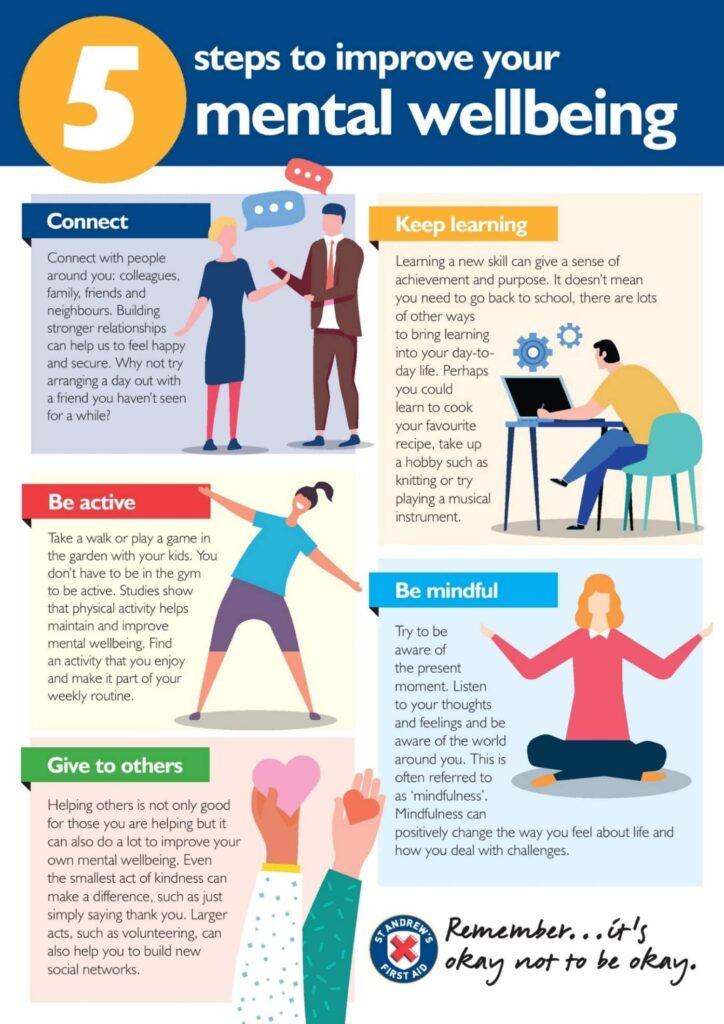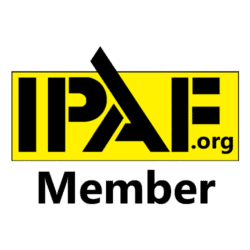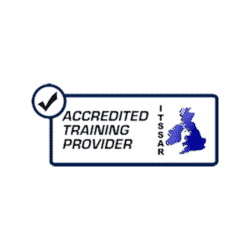1. Policy Statement
1.1. This policy outlines how we will provide the best teaching, learning and assessment measures that we can in in an online capacity.
1.2. We will use a range of remote support mechanisms and implement a digitalised curriculum to ensure that learning is continuous and any disruptions to apprentices and employers are kept to a minimum.
2. Scope of Policy
2.1. The policy relates to all apprenticeships, commercial and other funded education programmes that are provided by 2 Start Ltd. This includes adult learners and those aged between 16 – 18 years old.
2.2. We acknowledge that there may be incidences where our response does not meet all individual learner needs. We will respond to specific needs on an individual basis and provide exceptional support as required.
3. 2 Start Ltd Values
This policy underpins our commitment to our values, with particular reference to:
- RESPECT – Recognising, respecting and valuing diversity of all individuals and their unique talents and promoting equality
- SUPPORT – A strong ethos of care, guidance and support for all
- SPECIALISE – Utiltsing our vast experiences and expertise in logistics to benefit learners and employers
- RESPOND – Listening to our customers and partners and being equipped to meet their changing needs
- QUALITY – Providing outstanding teaching, learning and customer service
- DEVELOPMENT – Supporting continuous professional development for all staff
- WELL-BEING – Maintaining a safe, healthy and sustainable environment for learners, staff and visitors
4. Implementation Principles
4.1. The actions we will take to continue to deliver apprenticeships and other forms of training are documented in Appendix 1.
4.2. The policy will be communicated to all employees, employers and learners by electronically. Updates to the policy will also be communicated via this method.
5. Roles and Responsibilities
| Role | Responsibility |
|---|---|
| Board | Approving the policy Checking the policy’s efficacy Ensuring the policy is carried out as directed |
| Apprenticeship Manager | Communicating the policy to employers Informing the Board of employers’ feedback on the policy |
| Senior Management Team | Communicating the policy to 2IC and staff Ensuring staff understand and have the skills and capacity to carry out the policy |
| Quality Manager/Apprenticeship Manager | Quality assuring the implementation of the policy Providing support to staff in implementing the policy Reporting to the Board on how well the policy is being implemented |
| Health and Safety Advisor | Carrying out any risk assessments that arise as a result of the policy’s intent |
| Safeguarding Lead | Providing support to staff, learners and employers as described within the policy Informing the Board on emerging issues or amendments that are required to the policy |
| Trainers | Implementing the policy as directed |
| Senior Management Team | Monitoring the implementation of the policy and reporting any difficulties or recommended amendments to the Quality Manager/Apprenticeship Manager |
6. Policy Monitoring and reporting arrangements
6.1. This policy is approved by the governing board.
6.2. This policy will be reviewed annually unless circumstances require a review sooner.
APPENDIX 1 – REMOTE TEACHING, LEARNING AND ASSESSMENT PROVISION
1) Safeguarding and our Prevent Duty
- When a person spends more time alone, their vulnerabilities increase. It is easier to be swayed by social media news or to seek connections with groups who offer social support. However, it’s critically important that individuals are able to distinguish between genuine support groups and those who seek to groom or radicalise people to meet initially unapparent but dangerous means. Extremist groups have seized the pandemic as an opportunity to engage with more people online and the current threat level to the UK is SEVERE.
- We urge all learners and employers to educate themselves to identify what is ‘actual’ and what is ‘fake’ news. We include this within our teaching, but other sources of advice that may be of benefit are available at:
- We also strongly encourage all employers and learners to access the ACT app and their resources. Please find the link here www.actearly.uk
- Remember, all our staff are trained in safeguarding. Please speak to them about any concerns that you may have. You can also contact our Safeguarding Officer, Nicky Hanson, confidentially on 07984138732 or email nicky@2start-training.com
2) Online Curriculum
- Enrolments and inductions will be completed online on a one to one basis. This will be arranged by the Apprenticeship Manager and employer. Digital signatures will be used to sign commitment statements.
- Our DCPC, ADR examinations and functional skills sessions are all available through live online teaching sessions. We are continually reviewing our online provision to make it better, more engaging and more easily accessible. Sessions are not recorded.
- Functional Skills English and maths levels 1 & 2– Consists of a rolling timetable involving online group or one-to-one sessions agreed with learners and trainers at 20-20 Learning. Learners book on to suitable date and time slots to fit in with other work commitments and may include some evening times.
- DCPC – Various accredited courses are available through Zoom/Teams and are live sessions. Learners book onto relevant courses which are group sessions on specific dates provided by 2 Start.
- ADR Examinations – From Jan 2024, Learners will conduct their ADR examinations online at a 2 Start premises using our specifically dedicated laptops with appropriate specifications to meet the guidelines set out by the awarding body.
3) Reviews
- The Apprenticeships Manager will carry out reviews online, and will arrange these directly with learners and employers. Employer input is crucial to achieving a meaningful and target driven review. We are developing the review process to minimise any bureaucracy and making it as straightforward and accessible as possible.
- Onefile will continue to be used to record all off the job hours, reflective accounts and to monitor progress.
4) ICT Equipment
- We acknowledge that not all learners may have access to ICT equipment or internet connections. We offer learners the opportunity to work at one of our depots using 2 Start equipment to complete their course. Learners may also have the opportunity of trainer support if required.
- The government have provided support for those with limited broadband connections.
5) Face to face provision
- Site visits and face to face tuition will be arranged by the Apprenticeship Manager and the employer and employee. Priority for learners aged between 16 – 18 years will be given.
- Approval for site visits and face-to-face tuition must be agreed prior to any visit in case additional risk assessments need to be carried out.
6) Emotional and wellbeing support
- We have a number of staff who are trained and deliver training in Mental Health and Wellbeing as part of one of our accredited DCPC courses.
- We understand that this is a very difficult time for individuals and we are here to support you. We can find wider, more specialised support for you if it is needed.
- If you are feeling particularly low or worried please let your trainer know or talk to us confidentially by calling Nicky Hanson on 07984138732 or Caroline Moon on 07863292361 or talk to your trainer for more advice.
- We also recommend following the 5 steps to positive wellbeing, please see the attachment for information or follow this link https://www.nhs.uk/conditions/stress-anxiety-depression/improve-mentalwellbeing/
7) Wider learning opportunities
- Free courses to help you learn new skills or get a new job are available at https://theskillstoolkit.campaign.gov.uk/
Topics include:
- practical maths
- computer essentials
- personal growth and wellbeing
- professional development
- business and finance
- digital design and marketing
- computer science and coding
8) Staff training and support
- Our staff have continued to provide learning and business support throughout the year, but please bear with them over the next few months and give consideration to the pressures that they may also face, both professionally and personally.
- We have spent a considerable amount of time developing parts of our curriculum so that it can be delivered remotely. We regularly assess our online teaching to assess the efficacy of our online practices and to seek out innovative and emerging developments in remote provision.
9) Examinations
- Learners complete initial diagnostic tests online set by 20-20 Learning.
- Learners complete their final English and Maths level 1 and 2 examinations at home and adhere to specifications set by the examining board. These are remotely invigilated by a member of the examining board.
- Advice and support on functional skills assessments is available at Nicky@2start-training.com
- LGV theory tests and practical examinations are conducted at one of the 2 Start premises or a registered DVSA site. These tests are booked by 2 Start on behalf of the learner and are at and agreed time and date.
- DCPC courses have no examinations and are currently an attendance course only.
- ADR exams are set up to be taken online as of Jan 2024. 2 Start follow the guidelines set out by SQA and a member of 2 Start who is qualified in teaching ADR invigilates.
10) End Point Assessments
- We have had regular meetings with our End Point Assessment Organisations to ensure we are providing the best opportunities for our apprentices to sit their end point assessments.
- Gateway interviews will be conducted online, and documentation will be completed using digital signatures.
11) Consideration of additional needs
- All learners with additional support needs will receive one to one tuition online on a regular basis
- Amendments will be made to online resources to support learners with any visual or hearing impairments.
- Learners who require additional independent materials are provided with textbooks and other resources. Additional one-to-one support is available.
DIGITAL SAFETY AND SAFEGUARDING FROM HARMFUL INFLUENCES ONLINE
- Many of us are online for extended periods of time, accessing social media as well as other information sources.
- Many of us are online for extended periods of time, accessing social media as well as other information sources.
- The online world is a necessity for many people accessing GP care, and it delivers huge benefits, not least in enabling us to stay connected to family and friends.
- Although rare, there is a risk that increased online activity and feelings of stress and isolation may be exploited by negative influences and online groomers of all kinds to target vulnerable people and young people directly.
- An understanding of digital safety will help safeguard loved ones from a range of harms, whether that’s child sexual exploitation, fraud, or extremist influences seeking to radicalise vulnerable people.
- Extremists may use the COVID-19 outbreak to promote hateful views, for example through conspiracy theories blaming a particular group for the virus, or through spreading misinformation regarding these groups’ responses to it.
What steps can I take to keep safe online?
- If you have downloaded new apps or bought new technology to help stay connected at this time, remember to review and adjust privacy and safety settings if you are signing up to a new online service.
- You can switch on family friendly filters to help prevent inappropriate content being accessed on devices in your home.
- The UK Safer Internet Centre provides guidance on how to do this.
- Internet Matters has also provided step by step guides on how to setup parental controls.
What are the signs that may indicate someone is be being exploited online?
- Online exploitation is often hard to recognise because it is a complex issue. When it comes to being drawn into extremist ideas online, sometimes there are clear warning signs, in other cases the changes are less obvious.
- Although some of these traits may be quite common among teenagers, taken together they could be indicators that your child may need some help:
- Exploring new and unusual websites, chat forums and platforms. Harmful influences may push individuals towards platforms with a greater degree of anonymity.
- Joining new or secret groups since isolation.
- Speaking with new friends or being secretive about chats during online gaming or in forums.
- A strong desire to seek new meaning, identity and purpose.
- Using language you wouldn’t expect them to know.
- Watching, sharing or creating films online linked to religious, political or racial hate.
- Becoming increasingly argumentative or refusing to listen to different points of view.
Should I be concerned that a loved one is being exploited online?
- The above are merely signs that they might need help, but you know your child best and you will want to speak with them first. Check in with them and ask about what they are viewing, who they are speaking to and how they are feeling. This might feel difficult, but here are some pointers to help you:
- Listen carefully to their fears and worries. Find some helpful tips here.
- Avoid explanations that could be interpreted as antagonistic, belittling or frightening.
- If they are finding it hard to cope with bereavement and grief – advice can be found here.
What help is available if someone is being exploited online?
- It is important to safeguard loved ones from a range of online harms, whether that’s child sexual exploitation, fraud, or extremist influences seeking to radicalise vulnerable people.
- If you are concerned that you or someone you know may be at risk of radicalisation, help is available to make sure they get the support they need to move away from harmful influences.
- Teachers, healthcare practitioners, social workers, the police, charities, psychologists and religious leaders work together to safeguard those vulnerable to radicalisation through a safeguarding programme known as Prevent.
- Prevent protects people from being drawn into hateful extremism – regardless of the ideology. It works in a similar way to safeguarding processes designed to protect people from gangs, drug abuse, and physical and sexual exploitation.
- Receiving support through Prevent is voluntary, confidential and not any form of criminal sanction. It will not show up on any checks or negatively affect an individual’s future in any way.
- The type of support available is wide-ranging, and can include help with education or careers advice, dealing with mental or emotional health issues, or digital safety training for parents; it all depends on the individual’s needs.
- With this specialist help, vulnerable people across the country have moved away from supporting hateful extremism, enabling them to live more stable and fulfilling lives.
How can I access support and advice for a loved one being radicalised?
- As with other safeguarding functions, Prevent is still operating during this time and is here to support families in times of need.
- If you are worried that a loved one is being radicalised, you can call the police on 101 to get advice or share a concern so that they can get safeguarding support. Alternatively, you can contact your local authority safeguarding team for help.
- Contacting the authorities will not get the individual into trouble if a criminal act hasn’t been committed. The local authority or police will discuss your concerns, suggest how they can best help and give you access to relevant support and advice.
- If you think someone is in immediate danger, or if you see or hear something that may be terrorist-related, trust your instincts and call 999 or the confidential Anti-Terrorist Hotline on 0800 789 321.
I have seen concerning hateful content online that could cause harm. What should I do?
- Prevent takes robust action to tackle radicalisation online and to counter the ideology promoted by extremists. This includes removing terrorist-related material and action to suspend the accounts of those fuelling these views.
- Any member of the public can report terrorist content they find online through the GOV.UK referral tool. The Action Counters Terrorism campaign provides more information on this.
Further resources
There are resources available to help you understand and protect yourself from different harms online.
- Educate Against Hate Parents’ Hub provides resources and government advice for parents and carers on keeping young people safe from extremism.
- Let’s Talk About It provides support for parents and carers to keep children safe from online radicalisation.
- UK Safer Internet Centre has guides on the privacy settings, parental controls and internet safety features of the major internet service providers.
- Parent Info provides digital support and guidance for parents and carers from leading experts and organisations
- NSPCC guidance for parents and carers is designed to help keep children safe online. Their Net Aware website, produced in collaboration with O2, provides specific safety information on popular apps and websites.

Monitoring and Review
Last updated: 25/08/2024
Next review update: 25/08/2025
Reviewed by: Caroline Moon (Finance Director & Deputy Safeguarding Lead)










